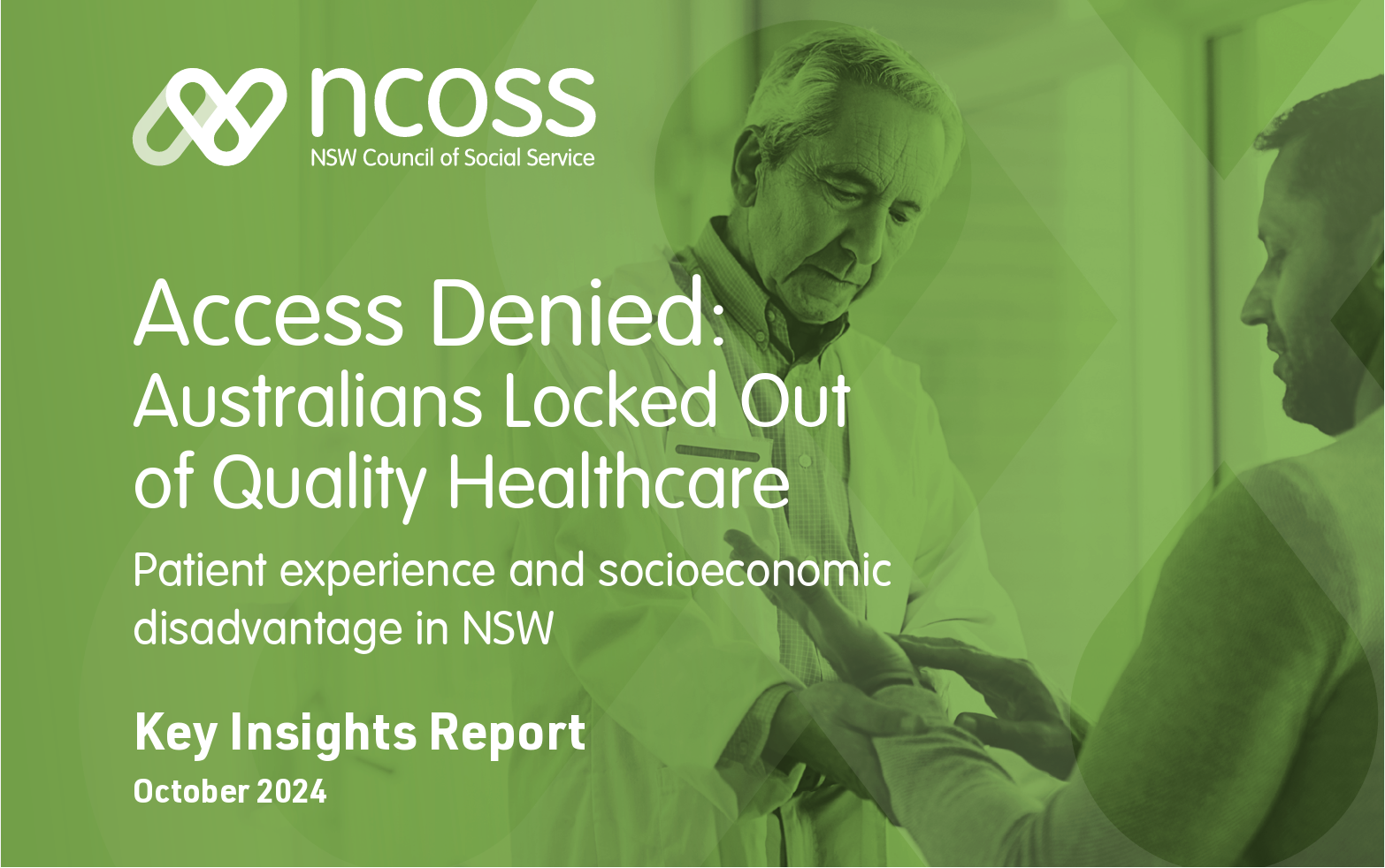The Challenge
The mental health system in NSW is fragmented, under-resourced and heavily weighted towards providing acute care and crisis support. Mental health outcomes are deteriorating as a result, particularly for people experiencing poverty and disadvantage who struggle to navigate multiple service systems and access preventative care in the right place at the right time.
The Facts
- 1.8 million people have a long-term mental and behavioural condition.
- 1 in 4 people with poor mental health experience financial stress compared to 1 in 10 people with moderate to good mental health.
- One-third of people living with a mental health condition live in poverty as a direct result of poor mental health.
- There are 250 mental health-related presentations in NSW public emergency departments each day.
- Cost to the NSW economy of poor mental health caused by child poverty is estimated to be close to $1.8 billion annually (related to lifelong impact including health service use and reducing earnings and participations in the labour market).
- The NSW Government only spends $265 per person on specialised mental health services, the lowest in the country.
- As little as 1.8% of total health spending in Australia is allocated to prevention.
Our Position
NSW has a mental health system that is resilient, sustainable, integrated with other social service systems, and responsive to the needs of people experiencing poverty and disadvantage.
Policy Priority
Description
Overall focus and investment shifts towards prevention, early intervention and social infrastructure
Increase investment in prevention and social infrastructure so that people are supported to live in healthy environments, access supports earlier, and stay well in the community for longer.
Mental health services and supports are designed and evaluated through a lens poverty and disadvantage
Adopt a Health-in-All-Polices and social determinants approach to mental health care and wellbeing so that service systems respond holistically to the needs of people experiencing poverty and disadvantage.
Better integration and navigation across the mental health and social service systems
Invest in more place-based integrated service hubs, peer navigation models and cross-sector collaboration so that people can more easily navigate across service systems, and service fragmentation and barriers to access are reduced.
A resilient system prepared and resourced to protect community wellbeing during and following climate disasters
Provide long-term flexible adaptation funding to local community services to respond to the mental health and other impacts of a changing climate, so that impacted communities can access longer-term, stable, ongoing mental health supports that adapt to evolving needs.
NCOSS also supports the priorities of our peak members, including the Mental Health Coordinating Council and BEING Mental Health Consumers.





